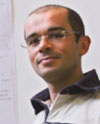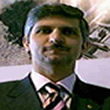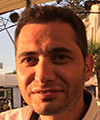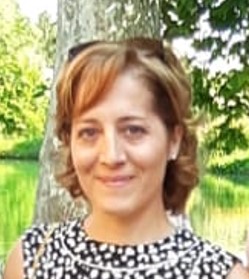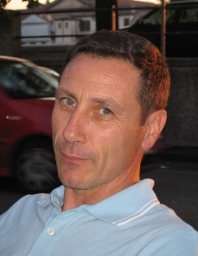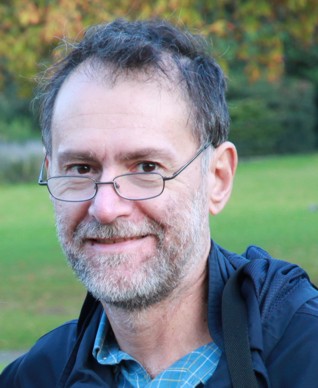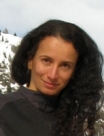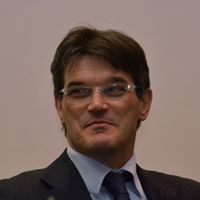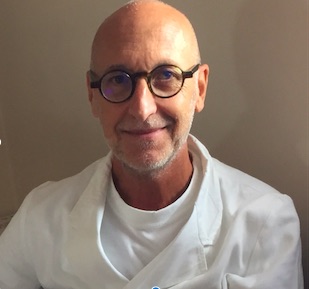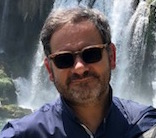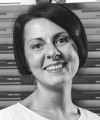Studying at the University of Verona
Here you can find information on the organisational aspects of the Programme, lecture timetables, learning activities and useful contact details for your time at the University, from enrolment to graduation.
Academic calendar
The academic calendar shows the deadlines and scheduled events that are relevant to students, teaching and technical-administrative staff of the University. Public holidays and University closures are also indicated. The academic year normally begins on 1 October each year and ends on 30 September of the following year.
Course calendar
The Academic Calendar sets out the degree programme lecture and exam timetables, as well as the relevant university closure dates..
| Period | From | To |
|---|---|---|
| I SEMESTRE | Oct 1, 2018 | Jan 25, 2019 |
| II SEMESTRE | Mar 4, 2019 | May 31, 2019 |
| Session | From | To |
|---|---|---|
| Sessione invernale | Jan 28, 2019 | Feb 28, 2019 |
| Sessione estiva | Jun 3, 2019 | Jul 5, 2019 |
| Sessione autunnale | Aug 26, 2019 | Sep 30, 2019 |
| Sessione straordinaria | Jan 27, 2020 | Feb 28, 2020 |
| Session | From | To |
|---|---|---|
| Sessione invernale | Mar 18, 2018 | Apr 5, 2018 |
| Sessione estiva | Jul 8, 2019 | Jul 26, 2019 |
| Sessione autunnale | Oct 14, 2019 | Nov 5, 2019 |
| Sessione straordinaria | Mar 16, 2020 | Apr 3, 2020 |
Exam calendar
Exam dates and rounds are managed by the relevant Exercise Science Teaching and Student Services Unit.
To view all the exam sessions available, please use the Exam dashboard on ESSE3.
If you forgot your login details or have problems logging in, please contact the relevant IT HelpDesk, or check the login details recovery web page.
Should you have any doubts or questions, please check the Enrollment FAQs
Academic staff
 paola.cesari@univr.it
paola.cesari@univr.it
 paolo.dellaquila@univr.it
paolo.dellaquila@univr.it
 nicola.rovetti@univr.it
nicola.rovetti@univr.it
 fabio.sartori@univr.it
fabio.sartori@univr.it
Study Plan
The Study Plan includes all modules, teaching and learning activities that each student will need to undertake during their time at the University.
Please select your Study Plan based on your enrollment year.
1° Year
| Modules | Credits | TAF | SSD |
|---|
2° Year activated in the A.Y. 2019/2020
| Modules | Credits | TAF | SSD |
|---|
| Modules | Credits | TAF | SSD |
|---|
| Modules | Credits | TAF | SSD |
|---|
| Modules | Credits | TAF | SSD |
|---|
1 module among the followingLegend | Type of training activity (TTA)
TAF (Type of Educational Activity) All courses and activities are classified into different types of educational activities, indicated by a letter.
Biomedical control in training (2018/2019)
Teaching code
4S000543
Credits
12
Coordinator
Language
Italian
Also offered in courses:
- Biomedical control in training - RISPOSTE FISIOLOGICHE ALL'ESERCIZIO ED ALLENAMENTO: PARTE GENERALE of the course Master's degree in Sport Science and Physical Performance
- Biomedical control in training (mountain sports) - RISPOSTE FISIOLOGICHE ALL'ESERCIZIO ED ALLENAMENTO: PARTE GENERALE of the course Master's degree in Sport Science and Physical Performance
The teaching is organized as follows:
Learning outcomes
PART I
At the end of the course students should know:
- The role of endocrine factors during exercise adaptation, the physiological changes and the most common and important pathological modifications of these factors during lifetime;
- The main features of the different types of diabetes, exercise prescription in order to prevent and treat type 2 diabetes, alterations to exercise adaptation related to diabetes and its pharmacological treatment, adaptations required in subjects with type 1 diabetes before, during and after exercise;
- Pathophysiology of metabolic syndrome, how to prescribe physical activity in order to prevent and treat metabolic syndrome, physical exercise in the treatment of obesity;
- Main consequences on exercise performance of the most common endocrine disor-ders; Interactions between female reproductive function and exercise performance, effects on ex-ercise capacity of the main drugs used to modify physiological and pathological aspects of female reproductive function;
- Main characteristics of the polycystic ovary syndrome, changes in exercise capacity in women with this syndrome, physical activity in the treatment of polycystic ovary syndrome; Physical activity in the prevention and treatment of gestational diabetes.
PART II
The lectures will present selected topics of integrative physiology applied to exercise and sports. By focusing on specific aspects of human physiology and a quantitative approach the course aims at fostering the under-standing of the control mechanisms, the integrated function of organs and systems towards the maintenance of the body homeostasis. The course will focus on the acute responses to exercise and the adaptive responses to training in different subjects (sedentary, women, older adults, athletes) and ambient conditions (hypoxia, extreme temperatures).
Bibliography
| Author | Title | Publishing house | Year | ISBN | Notes |
|---|---|---|---|---|---|
| Giuseppe D'Antona et al | Attività fisica: fisiologia, adattamenti all'esercizio, prevenzione, sport-terapia e nutrizione (Edizione 1) | Poletto Editore | 2019 | 9788895033761 | |
| Lenzi A, Lombardi G, Martino E, Trimarchi F | Endocrinologia e attività motorie | Elsevier Masson | 2008 | ||
| Kraemer WJ, Rogol AD | The endocrine system in sport and exercise | Blackwell Pub, Malden (USA) | 2005 | ||
| Sharon A. Plowman, Denise L. Smith | Exercise Physiology for Health Fitness and Performance (Edizione 5) | Wolters Kluwer Health Edition | 2017 | ISBN 9781496323187 | |
| Roy J. Shephard | Attività Fisica, invecchiamento e salute (Edizione 1) | McGraw-Hill | 1998 | 88-386-2928-5 | |
| W. D. Mcardle, F. I. Katch, V. L. Katch | FISIOLOGIA APPLICATA ALLO SPORT Aspetti energetici, nutrizionali e performance | Casa Editrice Ambrosiana | 2009 | ISBN 978-8-808-18224-1 |
Type D and Type F activities
| years | Modules | TAF | Teacher | |
|---|---|---|---|---|
| 1° | Biochemistry for sport | D |
Massimo Donadelli
(Coordinator)
|
|
| 1° | Methodology of sport activities measures | D |
Luca Paolo Ardigo'
(Coordinator)
|
|
| 2° | Adapted motor learning | D |
Mirta Fiorio
(Coordinator)
|
|
| 2° | Advanced nutrition for sports | D |
Silvia Pogliaghi
(Coordinator)
|
|
| years | Modules | TAF | Teacher | |
|---|---|---|---|---|
| 1° | Sports and drugs | D |
Roberto Leone
(Coordinator)
|
|
| 1° | Forensic medicine and social security | D |
Aldo Eliano Polettini
(Coordinator)
|
|
| 1° | Neurological diseases and movement disorders | D |
Michele Tinazzi
(Coordinator)
|
|
| 1° | Research methodology applied to sport | D |
Barbara Pellegrini
(Coordinator)
|
|
| 1° | Statistics applied to movement sciences | D |
Maria Elisabetta Zanolin
(Coordinator)
|
|
| 2° | Neuromotor rehabilitation | D |
Nicola Smania
(Coordinator)
|
|
| 2° | Theory and pedagogy of nordic walking | D |
Barbara Pellegrini
(Coordinator)
|
|
| 1° 2° | Physiology of sport nutrition | D |
Silvia Pogliaghi
(Coordinator)
|
|
Career prospects
Module/Programme news
News for students
There you will find information, resources and services useful during your time at the University (Student’s exam record, your study plan on ESSE3, Distance Learning courses, university email account, office forms, administrative procedures, etc.). You can log into MyUnivr with your GIA login details: only in this way will you be able to receive notification of all the notices from your teachers and your secretariat via email and soon also via the Univr app.
Graduation
List of theses and work experience proposals
Student mentoring
Gestione carriere
Orario lezioni
L’orario delle lezioni comprende
Lezioni Frontali in aula
Esercitazioni e laboratori
Questi ultimi sono organizzati per gruppi dai singoli docenti responsabili dei corsi.
L'orario è pubblicato nel portale studenti
Modalità di frequenza
Vige l'obbligo di frequenza al 70% come specificato nel Regolamento di ogni singolo corso di laurea e laurea magistrale:
Ulteriori informazioni:
L'accesso alle pagine Moodle dei singoli insegnamenti è vincolato alla compilazione del piano di studi.
App Univr Lezioni, FAQ e guida all'utilizzo sono disponibili al seguente link: orario-lezioni-e-modalita-di-frequenza
Comunicati: Avvisi per studenti
Internships
Internships are aimed at enabling students to gain direct knowledge of the world of work and to acquire specific professional skills.
Internships are carried out under the responsibility of an individual lecturer, and can be carried out in professional firms, public administration bodies and companies recognised by the University of Verona.
Any CFU credits gained by doing internships will be recognised and recorded by the University in accordance with the relevant University regulations in force (Regolamento d’Ateneo per il riconoscimento dei crediti maturati negli stage universitari).
For further information on internships, please go to: https://www.univr.it/it/i-nostri-servizi/stage-e-tirocini.
Linguistic training CLA
Certificazione medica di idoneità
Riferimenti normativi principali: DM 24 aprile 2013 art. 3, GU 169 del 20-07-2013; Decreto del Ministro della Salute dell’8 agosto 2014 e s.m.i.
Per frequentare le attività dei corsi di Laurea e Laurea magistrale di Scienze motorie è obbligatorio presentare la certificazione medica di idoneità fisica per attività sportiva non agonistica. La certificazione è necessaria per accedere alle attività pratiche-esercitative e al tirocinio.
à COME OTTENERE LA CERTIFICAZIONE
La certificazione - riportante l’indicazione che è stato eseguito l’ECG a riposo - può essere rilasciata da:
- centri o servizi di medicina dello sport delle ASL (ora ATS) e delle aziende ospedaliere
- istituti della Federazione Medico Sportiva Italiana
- centri pubblici o privati autorizzati:
- dai medici di medicina generale di libera scelta, relativamente ai propri assistiti;
- dal medico specialista in medicina dello sport.
L’ECG a riposo deve essere ripetuto annualmente.
E’ ammesso anche il certificato medico di idoneità alla pratica sportiva agonistica, per chi ne fosse già in possesso.
à SCADENZA PER LA PRESENTAZIONE
La certificazione medica deve essere prodotta al momento dell'immatricolazione e, comunque, entro l’inizio delle lezioni alla Segreteria Corsi di Studio Scienze motorie. Spetta agli studenti rinnovarla annualmente alla scadenza - per ogni anno di iscrizione in corso o fuori corso. La Segreteria effettuerà periodicamente dei controlli sulla consegna dei certificati.
NOTA: Studenti immatricolati a seguito di SUBENTRO/RIPESCAGGIO/TRASFERIMENTO IN INGRESSO: se non è possibile rispettare la scadenza di presentazione del certificato sopra indicata, avvisare la Segreteria Corsi di Studio Scienze, scrivendo all’indirizzo certmed.scienzemotorie@ateneo.univr.it
à MODALITA’ DI CONSEGNA
La certificazione va inviata alla Segreteria Corsi di Studio Scienze motorie dalla propria e-mail istituzionale nome.cognome@studenti.univr.it all’indirizzo certmed.scienzemotorie@ateneo.univr.it.
Student login and resources
Competenze linguistiche
DOPO LA LAUREA TRIENNALE
Per proseguire gli studi in uno dei corsi di Laurea Magistrale dell'ambito delle Scienze motorie è necessario possedere competenze linguistiche almeno di livello B1 informatizzato (o superiore) specificamente di lingua inglese, poichè i corsi di studio di livello superiore prevedono nel proprio piano didattico la presenza di insegnamenti o di moduli impartiti dai docenti direttamente in inglese.
Inoltre, tali competenze costituiscono requisito di accesso indispensabile per poter partecipare alla prova di ìngresso oppure per iscriversi ad una laurea magistrale.
La conoscenza di altre lingue diverse dall'Inglese NON può venire riconosciuta come "requisito" utile per l'accesso ai corsi di laurea magistrale. Tuttavia, la certificazione posseduta potrà essere valutata da un'apposita Commissione di docenti ed eventualmente riconosciuta in termini di crediti (CFU) a scelta dello studente, presentando domanda al momento dell'immatricolazione.
Si invita a leggere con attenzione i bandi di concorso annuali per l'ammissione ai corsi di laurea magistrali per maggiori informazioni - consultare nel sito del corso di studio anche la sezione "Iscriversi".

 +39 045 842 5117
+39 045 842 5117

